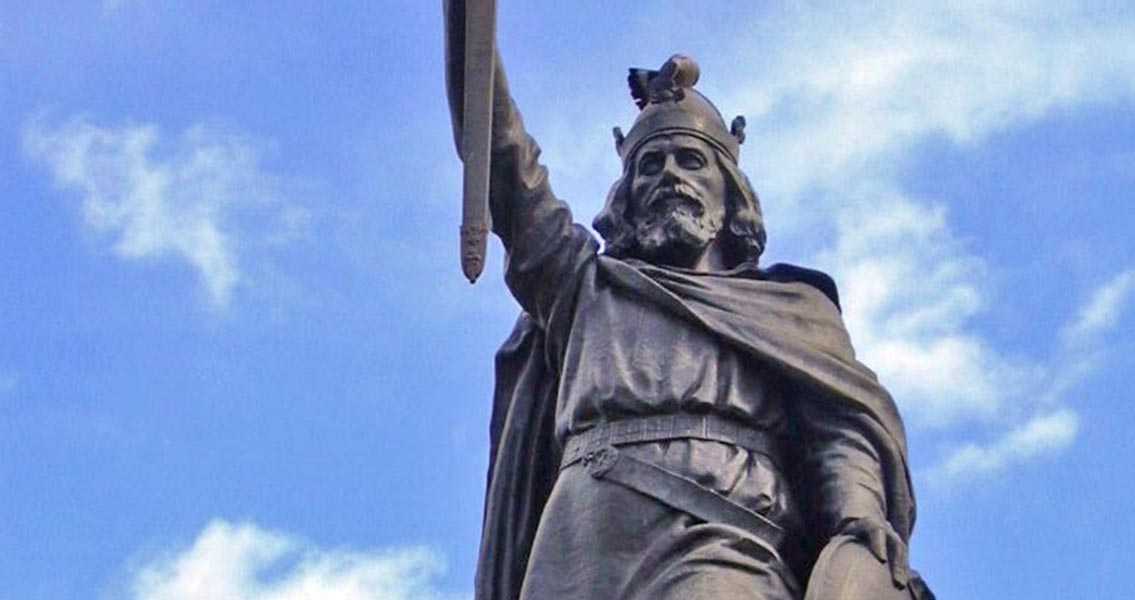<![CDATA[A proposed dig to discover King Alfred the Great's remains has met fierce resistance. Members of the group Hyde 900, a historical society, are hoping to uncover the famed English monarch's grave. They wish to excavate a site in St. Bartholomew's Church, Winchester. Interest in the site was piqued when recent analysis of a bone - first discovered during a dig at Hyde Abbey between 1997-1999 - revealed it was from the Anglo-Saxon period. It was also suggested that this bone may have been Alfred's, or possibly a close relative. Steven Marter, chairman of Hyde 900, and Prof Martin Biddle, a medieval archaeologist at Oxford University, are both very interested in the possibility of further investigation. "I have proposed with Hyde 900 a further excavation of the east end of Hyde Abbey," Prof Biddle told the Hampshire Chronicle. "Everybody thinks we have to look for King Alfred but we could learn a great deal more about the abbey itself." Edward Fennell, founder of Hyde 900, said "Im convinced the bones [of King Alfred] are down there still. I dont think anybody would have walked off with them." If this is the case, it would mean the site is of national significance. Alfred is one of the most famous English kings. He is particularly revered as he encouraged education, improved the English legal system, and successfully defeated Viking invasions. He is the only English monarch to have the epithet "the Great." Proposals for excavations of Alfred's possible burial site have, however, come under fierce opposition. The Friends of Hyde Abbey Garden are deeply opposed to any digs which, they claim, would destroy the garden, opened in 2003. Sue Nelmes, chair of the society, said that "[archaeological excavations] would mean total destruction of the garden. If it were to be destroyed it would be irreplaceable. We will oppose this, absolutely, 100 per cent, Simon Eden, city council chief executive, has noted that further digging would disrupt the garden which contains a statue by Tracey Sheppard. The dispute raises the debate about the damage excavations can cause. Obviously, archaeologists cause damage above ground, as gardens are dug through. Beyond this, archaeological research requires digging through several layers of soil which were deposited at different times. In seeking to dig deeper to uncover older artefacts, more recent artefacts can be destroyed. This was particularly the case before archaeology became an established academic discipline. Amateur archaeologists at the start of the twentieth century and earlier often destroyed things of great significance as they were not exactly sure what they were looking for. It is hoped that the proposed Hyde Abbey excavations can be undertaken without causing irreparable damage to the garden. "I entirely understand the concerns of the Friends of Hyde Abbey Garden," Prof Biddle said. "Im afraid we have caused some concern. But we would not do this without their agreement." Agreement between Hyde 900 and the Friends of Hyde Abbey Garden would mean archaeological work could be undertaken, whilst ensuring the garden was restored afterwards. The high-profile nature of any excavation would mean that funding for the restoration should not be a problem. Image courtesy of: Micione ]]>
Alfred The Great Excavation Fiercely Opposed
